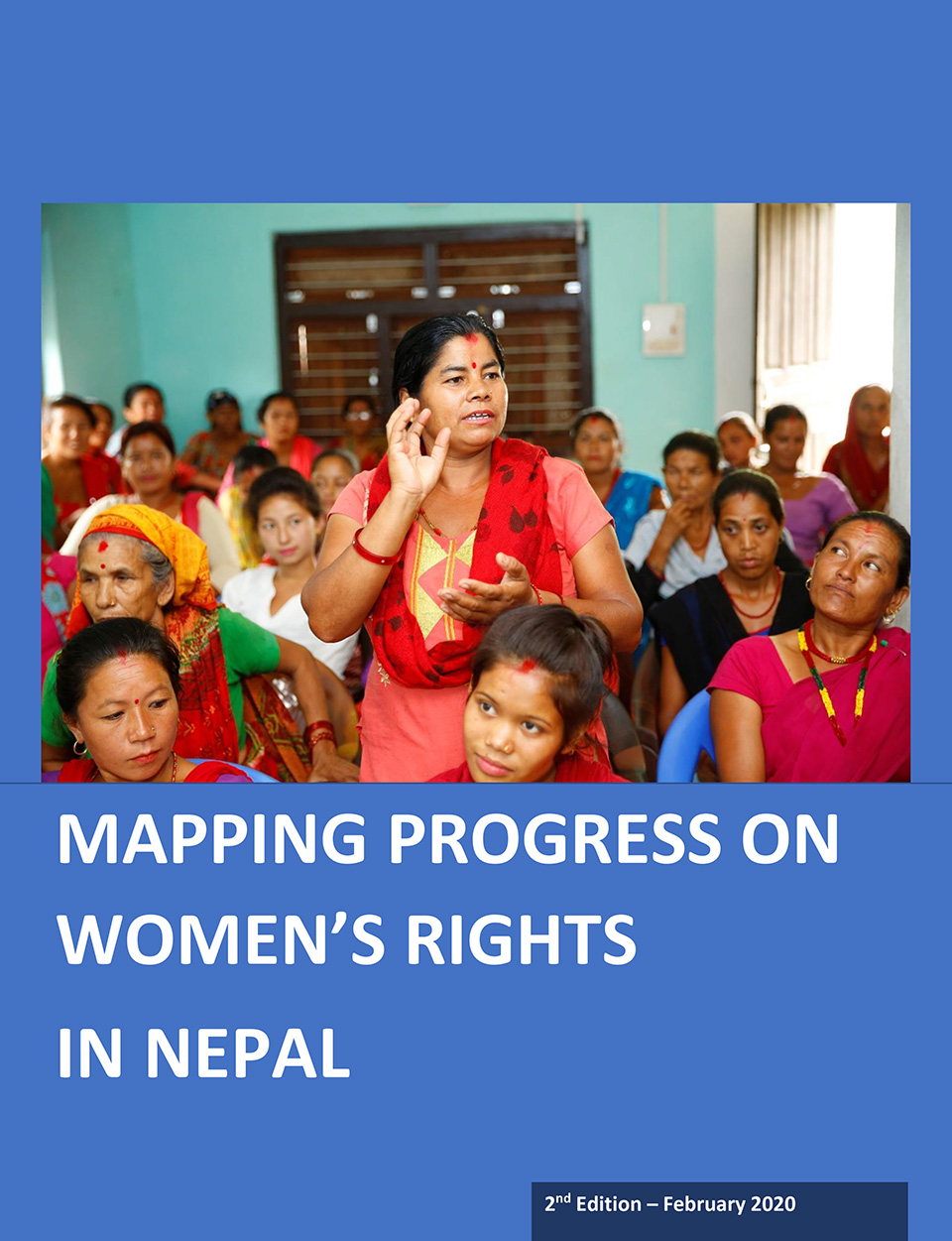
Mapping progress on women’s rights in Nepal

The Constitution of Nepal 2015 represented country's largest recent reform to advance inclusion, with the transition from a unitary to a federalist system of governance. This has resulted in notable changes in the legal frameworks and institutional mechanisms for achieving gender equality and empowerment of women and girls in line with the Convention on the Elimination of All forms of Discrimination Against Women (CEDAW), the Beijing Declaration and Platform for Action (BPfA) and the Sustainable development Goals (SDGs). The Constitution guarantees women's rights as a fundamental right, reaffirms the right to safe motherhood and reproductive health, education, health, employment, equal pay, social security and property rights and guarantees inclusion of women in all state bodies on the basis of principle of proportional inclusion. While legal frameworks provide solid ground for advancing the rights of women and marginalized groups, there are still challenges for translating legal equality into substantive equality for women and girls in Nepal.